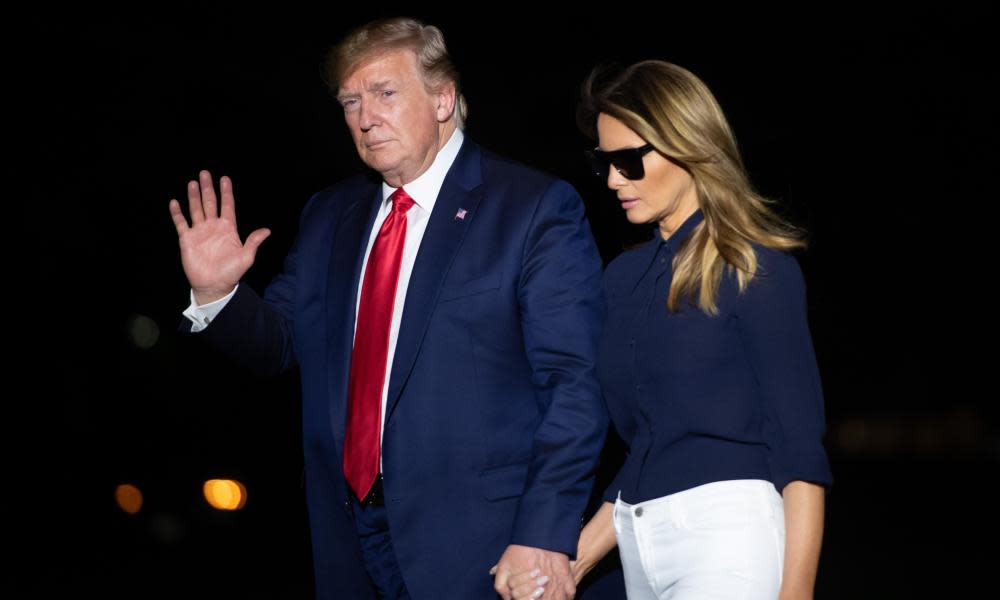We need to cancel the next G7. Let's resume them when Trump is gone

The takeaway from the 2019 Group of 7 (G7) Summit? We need to cancel the 2020 G7.
The goal of the G7 is to bring together some of the world’s most prosperous democracies to coordinate on the most important issues of the day. Whether on climate change or responding to Russia’s invasion of Crimea or making gender equality a reality, the G7 countries are supposed to lead, crafting policies that can foster global peace and prosperity in ways that uphold democratic values.
Right now, the G7 is not equipped to work towards these goals.
The biggest obstacle is the US president, Donald Trump, whose policies are antithetical to the goals of the G7 – he wants America to work alone, to destroy the current global trading system, slash foreign assistance that helps address transnational challenges, ignore human rights, and doesn’t believe climate change is real. When Trump attends, chances are high that he causes a diplomatic incident, like he did at the 2018 G7 when he threw a temper tantrum and insulted his Canadian host. The G7 is an annual long weekend of toddler day care for Trump.
But Trump isn’t the only problem right now. The United Kingdom is also led by an irresponsible leader who is in the process of pushing through Brexit no matter the consequences, which will undermine the UK’s role in the world and its ability to work with its G7 partners. Italy’s government is in crisis as far-right parties drive Italy to a dangerous place and its economy teeters on the brink of calamity. Japan is in the midst of a trade war and dangerous escalating tensions with South Korea, a fellow democracy and US ally.
This year’s summit might not have been as much of a disaster as last year’s, but the bar should not be whether or not Trump leaves in a huff because Italy refuses to sell him Sicily – it should be whether or not the meeting advances shared interests. And right now, it’s not.
The French president, Emmanuel Macron, wanted to focus the G7 on issues like climate change. But Trump was angered by this focus, considering it a “niche” issue, or perhaps a hoax by the Chinese to divert the G7’s attention from real issues, like completing the 2nd Avenue subway in New York City (yes, the president of the United States really did tweet about the NYC subway system in the middle of the G7). And so, Trump skipped the session dedicated to climate change.
Even the most basic goals of the summit – leaders taking photos and agreeing to a joint statement to show unity of purpose among democracies – are impossible with Trump involved. Macron wisely decided not to even attempt a full joint communique from the leaders (they instead released a brief one page list of issues discussed) – the first time in more than four decades of summits the G7 didn’t have one – in order to avoid last year’s catastrophe when Trump withdrew his support for the communique after it had been finalized.
If these reasons for suspending next year’s G7 summit weren’t strong enough, with the United States slated to host in 2020 there are endless more opportunities for disaster. Trump made clear yet again at this year’s summit that he thinks Russian President Vladimir Putin should be invited back, even though Russia was expelled after invading Crimea in 2014 and still illegally occupies Crimea. As host next year, Trump could invite Putin even if others don’t want to. Trump also said that he wants to host the G7 at one of his resort properties, another opportunity to enrich himself at the expense of the taxpayer and violate the emoluments clause of the constitution. And it’s scary to try to imagine what kind of policy agenda Trump would set – and especially terrifying envisioning Trump attempting to run the meetings.
And let’s be honest, no one wants this to happen next year. Trump doesn’t want to go to these summits. Other G7 leaders don’t want to attend. And we can all avoid the embarrassing spectacles and stark reminders that today, not even the world’s oldest democracies are united in shared values.
Canceling the next summit is not some ridiculous recommendation – it is a way to cope with the current realities and preserve a semblance of American credibility abroad. Of course, the United States won’t retreat from the world while Trump is president, and all these leaders will continue to deal with Trump. This just isn’t a productive setting now, and the good that is achieved on certain issues at the G7 can be achieved through other means. And if it seems fanciful to imagine Trump cancelling the meeting, just remember that he canceled a trip to Denmark because they wouldn’t sell him Greenland.
Coordination among the world’s democracies is vital to addressing any of the grave challenges we face in the 21st century, and the G7 should get back to business when Trump is gone. But right now, it’s not working. And maybe cancelling the summit one year will serve as a powerful reminder of the importance of the values that these democracies are supposed to stand for, and how necessary the G7 is when it lives up to its mission.
Michael H Fuchs is a senior fellow at the Center for American Progress, and a former deputy assistant secretary of state for east Asian and Pacific affairs. He is a contributing opinion writer at the Guardian US

